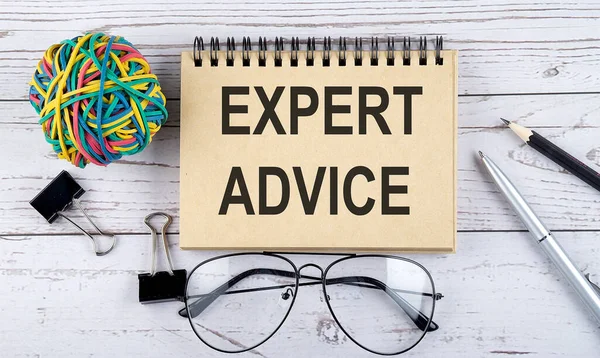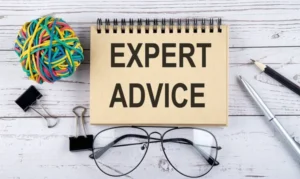How to Recognize Problem Gambling: An Expert Guide to Early Warning Signs

Problem gambling rarely begins as a clear, dramatic issue. More often, it grows silently—starting as entertainment, turning into a habit, and eventually becoming a compulsive behavior that affects finances, relationships, and emotional well-being. Recognizing the warning signs early is essential for prevention and recovery. Whether you’re evaluating your own behavior or concerned about someone you care about, understanding the psychology of gambling and the subtle red flags can make a critical difference.
This expert guide breaks down how to identify problem gambling realistically, compassionately, and effectively.
1. Understanding What “Problem Gambling” Really Means
Problem gambling isn’t defined solely by how often someone bets or how much they lose. Instead, it’s about behavioral patterns and emotional dependency.
A person may gamble once a month yet still have a problem if they:
- Lose control over time or money spent
- Rely on gambling as a coping mechanism
- Continue gambling despite negative consequences
On the other hand, someone who gambles frequently may remain in control and experience no harm. The key is loss of control—not frequency.
2. Early Behavioral Signs to Watch For
✔ Increasing Preoccupation
A person begins thinking about gambling constantly: reliving past wins, planning the next session, or searching for new casinos or strategies.
✔ Difficulty Stopping
They struggle to quit once they start, even after setting limits on time or money.
✔ Escalating Risk-Taking
This can include:
- Raising bet sizes over time
- Chasing losses after a bad session
- Playing longer sessions than planned
- Switching to higher-volatility games or riskier bets
This escalation is one of the strongest predictors of future addiction and should never be ignored.
3. Emotional and Psychological Warning Signs
Gambling activates dopamine pathways similar to drugs, causing emotional dependence and withdrawal-like effects when a person tries to stop.
✔ Mood Swings
Irritability, anxiety, or frustration when not gambling or after losing is common. People may seem calm while playing, but restless, depressed or short-tempered when they cannot.
✔ Gambling as Stress Relief
The person uses gambling to escape:
- Work or academic stress
- Family conflict
- Loneliness or boredom
- Feelings of depression or anxiety
This indicates gambling is no longer entertainment—it’s emotional self-medication.
✔ Secrecy or Defensiveness
They hide receipts, clear browser history, lie about losses, or get overly defensive when questioned about gambling activities. This secrecy is often a sign of internal conflict and shame.
4. Financial Red Flags
Money problems are often the most visible signs of problem gambling. Warning signs include:
- Unexplained withdrawals or missing funds
- Borrowing money from friends, family, or quick-loan services
- Using savings meant for bills, rent or family needs
- Increasing credit card debt or overdraft fees
- Selling possessions to get gambling money
Problem gamblers may insist that “one big win” will fix everything—a classic cognitive trap known as magical thinking.
5. Social & Lifestyle Indicators
As gambling takes more space in someone’s life, other areas begin to suffer.
✔ Neglecting Responsibilities
Missing work, skipping classes, being late on projects, or ignoring family obligations can all signal that gambling is becoming a priority over real-life commitments.
✔ Withdrawing from Family and Friends
The person spends more time alone online or at casinos, and less time in social or family activities that do not involve gambling.
✔ Relationship Conflicts
Partners or close relatives often notice the problem first: arguments about money, broken promises, or emotional distance. Frequent tension around finances and time spent gambling is a major red flag.
6. Digital-Age Warning Signs
Online gambling makes addiction easier to hide. It’s available 24/7, often on a smartphone, and doesn’t require leaving home.
Watch for:
- Hours spent on gambling apps or casino websites, especially late at night
- Gambling during work or study time
- Constant browsing of betting odds, slot reviews, or bonus promotions
- Multiple accounts registered across different casinos or betting sites
- Use of separate e-wallets or crypto wallets primarily for gambling
7. Self-Assessment Questions
Ask yourself—or someone you’re concerned about—the following questions:
- Do I gamble more money or time than I originally intended?
- Have I tried to stop or cut back but couldn’t?
- Do I chase losses, believing I’ll “win it back” if I keep playing?
- Have I lied to loved ones about how much or how often I gamble?
- Has gambling affected my financial stability or caused debt?
- Do I feel restless, irritable, or low when I can’t gamble?
If the answer is “yes” to two or more of these questions, it may indicate problem gambling and is worth taking seriously.
8. Why Recognizing the Signs Early Matters
Early recognition helps prevent deeper harm, such as:
- Severe financial loss or bankruptcy
- Long-term relationship breakdowns
- Job loss or academic failure
- Legal issues (fraud, theft, unpaid debts)
- Serious mental health problems like depression or suicidal thoughts
Many problem gamblers recover fully when they acknowledge the issue early and seek help. Denial is the main barrier to timely intervention.
9. Steps to Take if You Recognize the Signs
✔ Open the Conversation
If you’re approaching someone else, avoid blame or accusations. Use empathetic language, such as:
“I’ve noticed you seem stressed about money and gambling lately. I’m worried and I’m here to help.”
✔ Set Clear Boundaries and Limits
This might include setting spending limits, time limits, or blocking access to gambling websites and apps with specialized software.
✔ Seek Professional Help
Therapists who specialize in addiction, problem-gambling helplines, and support groups can offer structured support. Financial counselors can also help repair money damage and create realistic repayment plans.
✔ Use Technology Tools
Many licensed gambling sites and independent platforms offer tools such as:
- Self-exclusion programs
- Deposit and loss limits
- Session time reminders
- Reality checks and cool-off periods
✔ Build Healthier Coping Mechanisms
Replace the emotional “escape” of gambling with healthier alternatives: exercise, hobbies, social activities, relaxation techniques, or talking to a trusted person about stress.
Final Thoughts: Awareness Is the First Step
Problem gambling often begins quietly but can escalate quickly. By learning to recognize early behavioral, emotional, and financial warning signs, you protect yourself and those around you. Gambling should always remain a form of entertainment—not a way to escape problems, manage emotions, or chase impossible financial rescue.
Awareness, honesty, and proactive support can turn the tide long before gambling becomes a crisis. If you suspect a problem, taking action now—no matter how small—can help safeguard mental health, relationships, and financial stability.
This article is for informational purposes only and does not replace professional medical, psychological, or financial advice. If you or someone you know may have a gambling problem, seek help from qualified professionals or local support organizations.





